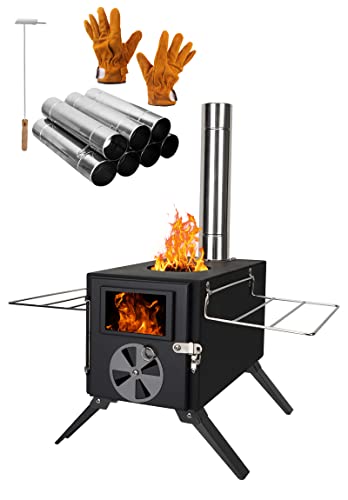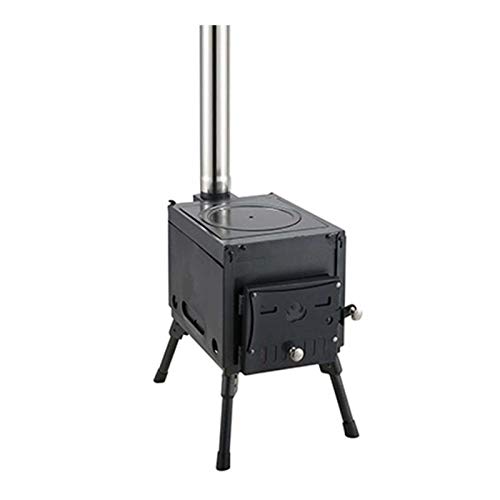5 Killer Quora Answers On Shed Wood Burner
Page Information

Content
 Shed Wood Burner - Safety Considerations
Shed Wood Burner - Safety Considerations Installing a stove into a shed, a log cabin, or a different off grid home is a fantastic idea. But, there are many factors to be considered before you do this.
Installing a stove into a shed, a log cabin, or a different off grid home is a fantastic idea. But, there are many factors to be considered before you do this.It's crucial to ensure your cabin or shed is properly insulated in order to limit heat loss and reduce fuel costs. Insulation can also reduce dampness, and improve the fire safety.
Size
A shed log burner is an ideal method to provide warmth to a shed or summer house. It is crucial to select the correct stove for your space and ensure that it complies with all the required safety standards. A stove that is too big isn't adequately venting and will also quickly soot up the flue. A stove that is too big isn't able to heat the room sufficiently.
First, you'll need to determine the dimensions of the shed and then choose the best location for the stove. Once you have decided the place where the stove should be positioned, you'll require a hearth to support it. The hearth should be at least 12mm thick, and constructed from a non-combustible material. The safe distance between a single-wall flue pipe and any combustible materials is 3 times its diameter however this distance can be reduced by using an insulative panel as shielding.
Once you've constructed the hearth, you are able to then put in the stove. You may require an oven pipe, a door, or a damper depending on the option you select. Install an alarm for carbon monoxide in your shed or cabin or shed, as they are smaller than homes, and they can swiftly fill up with CO gas.
If you're installing a stove inside the shed, you'll have to install a flue liner for safety and to avoid condensation. Flue liners can be found at most hardware shops and can be cut to the correct length. Use tin snips for removing the bottom and lid of the can. Make sure to bend any sharp corners within.
Safety
Shed wood burners are comfortable and efficient, however you should consider the safety aspects of the installation. This includes the proper installation and use of the stove, as well as an alarm for carbon monoxide and a fire extinguisher. It is also important to keep children and pets away from the stove to reduce the chance of accidents.
It is recommended to choose a HETAS certified installer to install your shed stove. They will be able to make sure that the installation is completed in compliance to current building regulations, including the necessary distances from walls that are combustible. This can save you from the requirement for a formal building control certificate.
You must ensure that you only burn well-seasoned, kiln-dried, seasoned wood in your stove in your shed. Don't burn treated off-cuts because they release chemicals that can pollute the air and cause air pollution. It is also important to ensure that you have a correctly constructed chimney. A single wall flue system is suitable for the majority of sheds, but if would like to install a double wall stove in your shed, this will require a larger chimney.
The smoke of wood-burning stoves can be hazardous, particularly for mothers who are expecting or newly born as well as children and the elderly. Smoke from a wood-burning stove can be dangerous for those with asthma, COPD, heart disease and even cats and dogs.
A fire-proof screen is recommended to protect children and pets from hot embers and sparks and it's an ideal idea to keep a book of fire logs and an extinguisher in case of an emergency. You will also need to ensure that you don't use gasoline or charcoal starter fluid near the stove in your shed because they are highly flammable substances and could explode or flare-up in the event of an accident.
You may live in a smoke-control zone. This will impact the type of stove you can install. You must select a log stove that is approved by DEFRA.
Installation
A log burner in your summer home or shed is a fantastic idea. It can bring you closer to the nature, and is more appealing than a traditional fire in your home. A log burner in your garden or shed can be a fantastic place to gather with family and socialising. It also allows you to enjoy the wonderful outdoors from the comfort of your home.
When installing a shed wood burner, you'll need to consider the size of your summerhouse or shed and the output that you need from the stove in order to heat it properly. It is also important to be aware of whether you are located in a smoke-free zone and if there are any local planning laws that might affect the installation. It is recommended that you consult with a HETAS certified installer to assist you plan your installation.
If you decide that you would like to install a Shed wood burning stoves for sale Burner (Gm6699.Com) the first thing you will need to do is determine the proper size flue pipe your shed will accommodate. The stove's manufacturer is likely to be able give you some suggestions on this. Once you have determined the size of the flue pipe, you can begin searching for shed log burners suitable for your summer house or shed.
After you have decided on the best contemporary wood burning stoves stove for your shed or summerhouse it is important to prepare the area for its installation. This includes removing any materials that could ignite and ensuring that there is a minimum distance of 1m from the shed to the front edge of the chimney stack. It is also essential to make sure that the stove is at least 2m away from the nearest walls that are combustible and that any combustible material in the shed is covered with fire board or the shed is insulated.
The next step is to install a hearth, which should be made from non-combustible material and be at least 12mm thick. You can choose any kind of concrete or stone for instance, but be cautious not to use sand, since it can affect the performance of your stove and result in a fault in the chimney. Also, you'll need a pair of twin wall flue pipe, class D airvent, and chimney cowl.
Maintenance
Shed wood burners are generally safe to use provided that there is adequate ventilation and a smoke alarm installed. If you intend to install a wood stove in your shed, make sure that the electrical installation is approved by an electrician and any flammable material is kept away from the stove.
Clean the glass and chimney of your shed log heater on a regular basis. You can use a gentle spray of vinegar to get rid of any marks or smudges from the inside of the stove glass - be careful not to get any vinegar inside the burner. You can also clean the exterior of the glass log burner using an easy solution consisting of water and paper towels.
Remember that shed log heaters are designed to work with dry-seasoned firewood. The logs' moisture content must be below 20 percent. The best method to determine the moisture level of your logs is to use a wood moisture meter. Store your wood burning stove for a shed in a well ventilated shed, and be sure to keep combustible items like curtains and furniture away from the shed. It is recommended to have your chimney cleaned at least year.
- PreviousYour Family Will Be Thankful For Having This Replacement Key Bmw 24.10.22
- Next20 Things You Need To Know About Corner Wood Burning Stove 24.10.22
Comment list
There are no registered comments.
